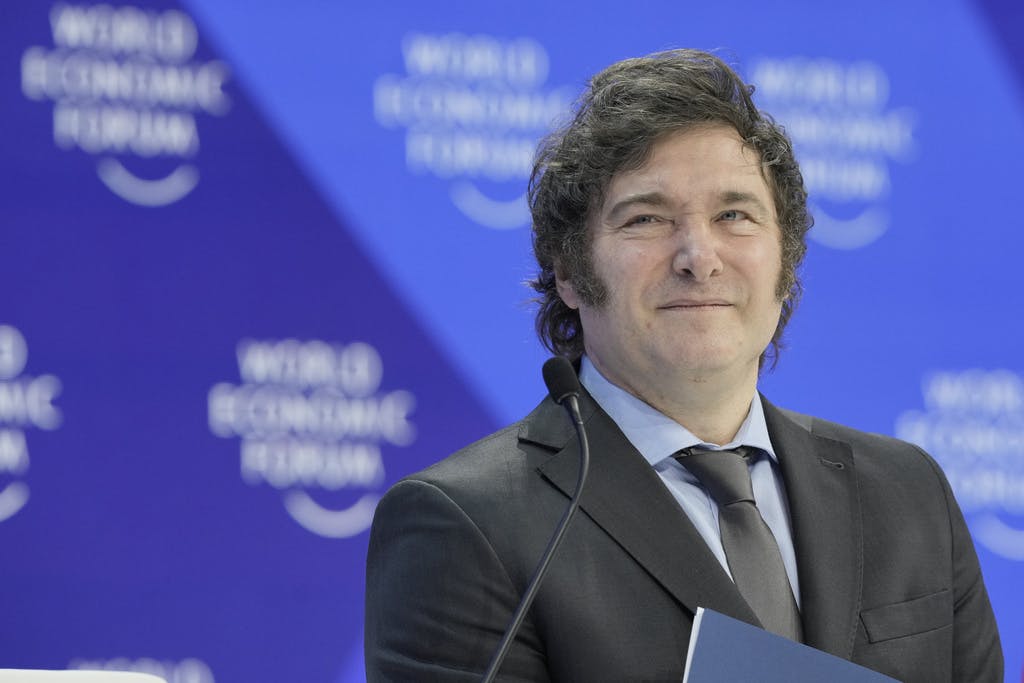Argentina: The Unions vs. the People
The labor unions call for a general strike against the people — who voted in November for a leader who would pursue the cause of liberty and property and growth.

It’s shaping up as the unions against the voters in Argentina. The chainsaw-wielding anarcho-capitalist leader, Javier Milei, is girding to face on Wednesday the biggest challenge to his presidency so far: a general strike called by unions desperate to protect the Perónist status quo that voters rejected in a landslide election in November. The planned “total strike” is a power play meant to strangle in the cradle Mr. Milei’s program of economic reform.
As the Economist reports, unions “are leading the pushback” against Mr. Milei’s efforts to reverse decades of leftist policies that have driven into the ditch the economy of Argentina, which was once among the world’s wealthiest nations. The labor groups are enraged in part, the Economist reckons, because Mr. Milei’s proposals “would kneecap them” by giving employees the freedom “to opt in” to join a union and not being automatically enrolled.
The planned strike, though, is directed more broadly against the agenda Mr. Milei was elected to execute. It’s no coincidence that the strike was announced the day after Mr. Milei pledged to “break the shackles of the oppressive state.” That vow includes a drive to break what he calls Argentina’s ruling “caste.” The Economist describes that as “a network of corrupt politicians, business cronies, media lapdogs and, most important, powerful trade unionists.”
While Argentina’s “caste” has thrived for decades under the leftwing hybrid of nationalism and statism known as Perónism, the country writ large has been stagnating under its program of high taxation, overregulation, and inflation that in December, Reuters reports, soared above 211 percent, the highest in some 30 years. Some 40 percent are in poverty. No wonder voters handed Mr. Milei a mandate to, as Reuters puts it, “get inflation under control.”
In respect of that end, Mr. Milei has outlined an ambitious agenda for renewal “to reduce the hand of the state in Argentina’s economy,” as Bloomberg describes it, and suggests, as these columns have noted, a kind of New Deal in reverse. The attempt by labor unions to bring the nation’s economy to a halt and put the kibosh on Mr. Milei’s program serves to underscore the urgency of his proposed reforms in the first place.
No wonder one of the union bosses is calling for “a massive show of force,” as the Financial Times reports, and another leftist leader is muttering ominously that Señor Milei’s government “will find itself facing a nation of mobilized people.” These labor groups are “central to the system Mr. Milei seeks to tear down,” the Economist explains, but they hardly speak for their members’ best interests: “They are powerful and enduring, often run like family businesses.”
Argentina’s leftist policies, and the stranglehold unions have had over its economy, are at the core of the nation’s woes, Mr. Milei suggested in his speech the other day to the mandarins at Davos. They are cautionary words for the wider West. “No matter how rich you may be,” he said, “if measures are adopted that hinder the free functioning of markets, competition, price systems, trade, and ownership of private property, the only possible fate is poverty.”
It was as stirring and clarion a call for economic and political freedom as it gets. To critics like Matthew Yglesias, though, who acknowledges “Argentina obviously needs free market reform,” Mr. Milei’s remarks came across as “crackpot Rothbard stuff.” That’s a reference to Murray Rothbard, the libertarian economist who was among the pioneers of so-called Austrian economics and the “anarcho-capitalism” that Mr. Milei has embraced.
Argentina, though, is a prime example of what Rothbard had in mind when he defined a domineering state as “a group of plunderers.” The brazenness with which Argentina’s unions are trying to derail Mr. Milei’s reforms also vindicates Rothbard’s observation that union power, when push comes to shove, stems from “the wielding of force.” Argentina now faces a test over who will prevail, the “caste” and its unions, or Mr. Milei and the voters.

